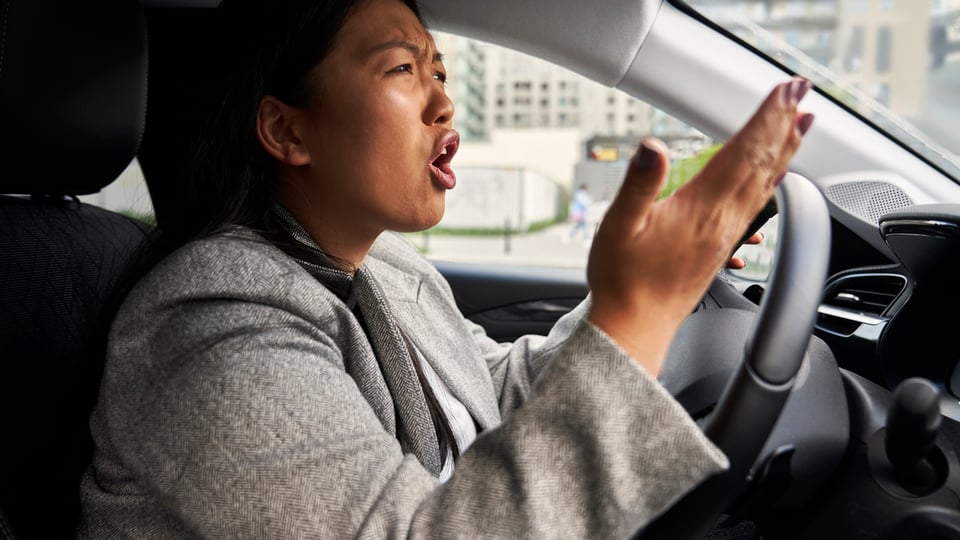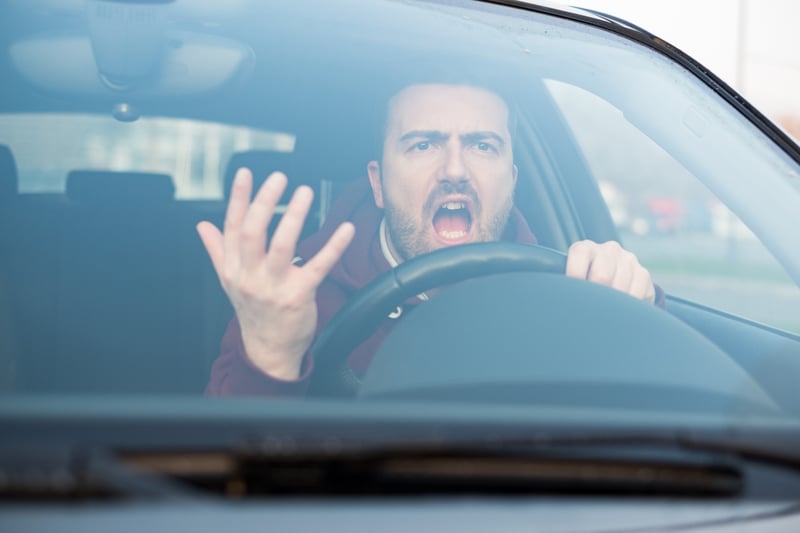Three Ways to Deal With Road Rage (and Life)
Road rage is a serious problem. The anger that leads to road rage also leads to many other troubles in life. Here are three tips to deal with this problem.

Your face gets red. Your blood pressure goes up. You scream at the other cars, not caring whether they can hear you or not. You shake your fist at the other drivers as they go either too slow or too fast. You have just experienced road rage.
In a quick-paced world full of selfishness, people can easily get frustrated with incidents on the road. Sometimes incidents of road rage can be very severe, while other times it doesn’t go beyond a curse uttered within the confines of one’s own car.
According to a March 20, 2023, USA Today article, a report from the advocacy group Everytown for Gun Safety found that road rage injuries and deaths involving guns “have increased every year since 2018 and about doubled from 2018 to 2022” (“Road Rage Shootings Are Increasing. There Were More Than 500 Last Year, Report Finds”).
Road rage often manifests itself in angry words and aggressive driving, such as speeding, following too close to a slower vehicle, passing someone and then hitting your brakes, flashing your headlights to get people to move out of your lane or honking your horn excessively.
This type of driving can result in accidents that severely injure or even kill.
Beyond the road
The road is really just a microcosm of our experiences in life. The only thing that we have control over is ourselves. The actions of those around us directly affect us, whether for good or for bad. The pressures of driving are often a reflection of the pressures of life.
Road rage is, sadly, a fact of life as well. In many cases those who experience road rage experience rage even when they are out of the car.
The anger is not always unwarranted—there are instances where drivers are reckless or make mistakes that endanger lives. But we can’t control what others do, so we’re left with only one other option for controlling road rage: ourselves.
Anger issues. Those who demonstrate rage on the road are often prone to rage in other areas of life. 
Here are three ways to deal with road rage—and life.
1. Recognize when you’re at fault
Sometimes the problem doesn’t lie with the other driver/person—but with us (Matthew 7:3-5). This point was brought home to me when a friend in the passenger seat interrupted my rant about the intelligence of a driver we had just passed by pointing out that I was the one at fault.
That was humbling—to analyze the incident and recognize that I was responsible for what could have turned into a bad accident.
Recognizing my fault definitely cooled my ire at the other person. In life, we also experience similar incidents.
It’s normal to think that we’re above it all; that all the stupidity and mistakes in the world belong to everyone else in the human population. Unfortunately, the root of this is often our own pride and ego (Proverbs 16:18). We need to be willing to recognize our own mistakes instead of automatically blaming those around us.
A key part of the process is analyzing ourselves on a regular basis. We should not be complacent about our driving, and we should be even less so about our lives. We are to examine ourselves on a regular basis (2 Corinthians 13:5). If we’re aware of ourselves, we’re much less likely to blame or get mad at someone else for our mistakes.
For more insight on this point, read “The Spiritual Tool of Self-Management” and “‘Examine Yourselves’: What Does It Mean to Be Disqualified?”
2. Have empathy for others
Placing ourselves in someone else’s shoes can help us have a different perspective and deal with a situation in a more balanced and controlled way. This is counter to the human tendency of rushing to judgment with the first impression, as we often do in our cars.
For example, what are your thoughts when you’re behind somebody going 40 miles an hour in a 55-mile-an-hour zone? Most people leap to the conclusion that they’re behind, if you’ll pardon the expression, a “granny driver.”
Because there can be numerous explanations for why people drive as they do, our first reaction should be empathy—not anger or judgment.
However, there are many possibilities that might explain the situation. It might be a young person just learning to drive, someone who isn’t familiar with the road and is looking for road signs, somebody who doesn’t know the speed limit or is having car trouble, someone making a simple mistake or possibly an elderly person whose slower reflexes and fear lead to slower driving.
One time I was driving home from the store and realized that something was wrong with my car as soon as I hit the road. I was suspicious of the transmission and assumed that it was fading. So I babied the car, going 20 or so miles an hour on my way home. Considering the speed limit was 55, this irritated quite a few of the people behind me. Two miles from my house, I realized that I had mistakenly put my automatic car into first gear, something I’m sure none of the drivers who angrily passed me suspected.
Because there can be numerous explanations for why people drive as they do, our first reaction should be empathy—not anger or judgment.
This gives us the sympathy and understanding that we often need in dealing with people. We need to remember that Christ said mercy was one of the most important characteristics we must develop (Matthew 23:23). The issue really isn’t the speed or the other driver. The bigger issue is our character.
Drive peaceably. We can avoid confrontations by exercising self-control and showing kindness to others on the road. 
3. Avoid confrontations
Many experts note that in dealing with road rage it’s important to avoid confrontations. These fights can become violent and dangerous as the people involved become more and more upset.
It is common for situations to escalate when there is a confrontation.
We should avoid confrontations by trying to live peaceably and striving to use softer, kinder words that de-escalate situations (Romans 12:18; Proverbs 15:1). This applies both on the roads and in life.
Confronting someone may feel good at the moment, but a confrontation always leaves behind damage that outweighs whatever temporary satisfaction we got out of it. (To learn more about the biblical perspective on conflict resolution, read “Conflict Resolution: Should I Say Something?”)
We don’t have to give in to road rage or go through life angry and miserable. We can get along with others more safely if we recognize our own faults, have empathy and avoid confrontations.
We should do all we can to live—and drive—safely!
Date Posted: February 7, 2024



